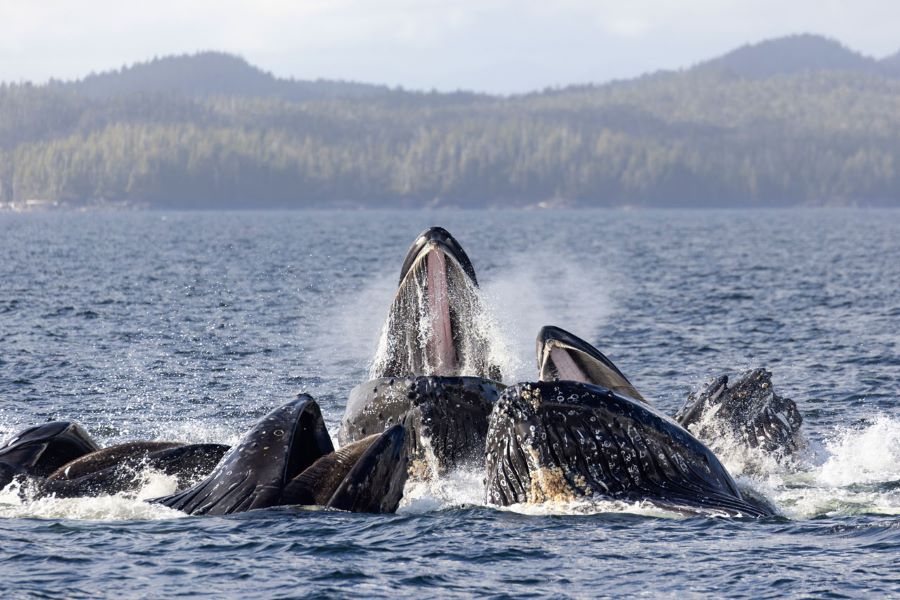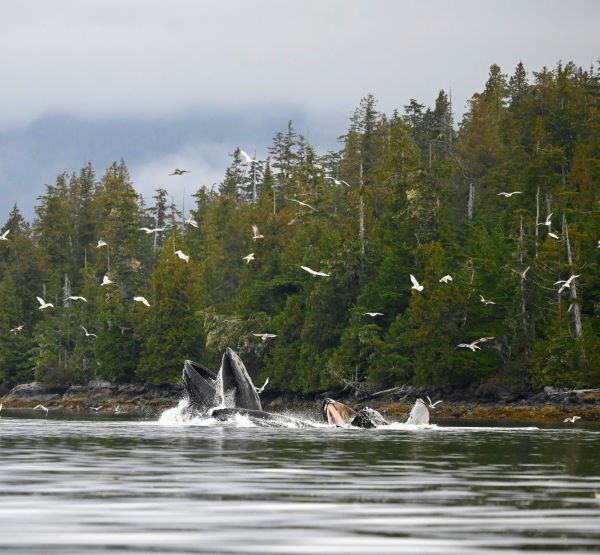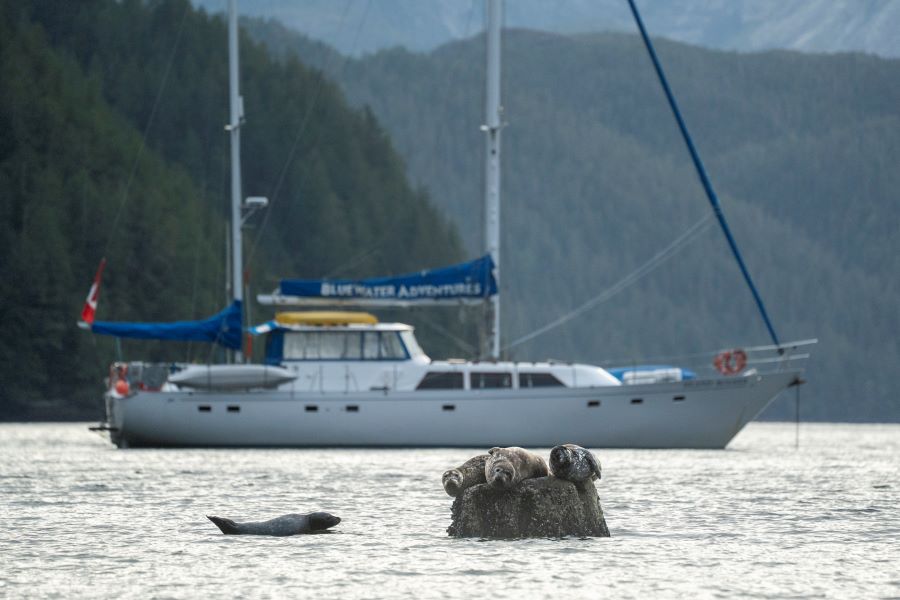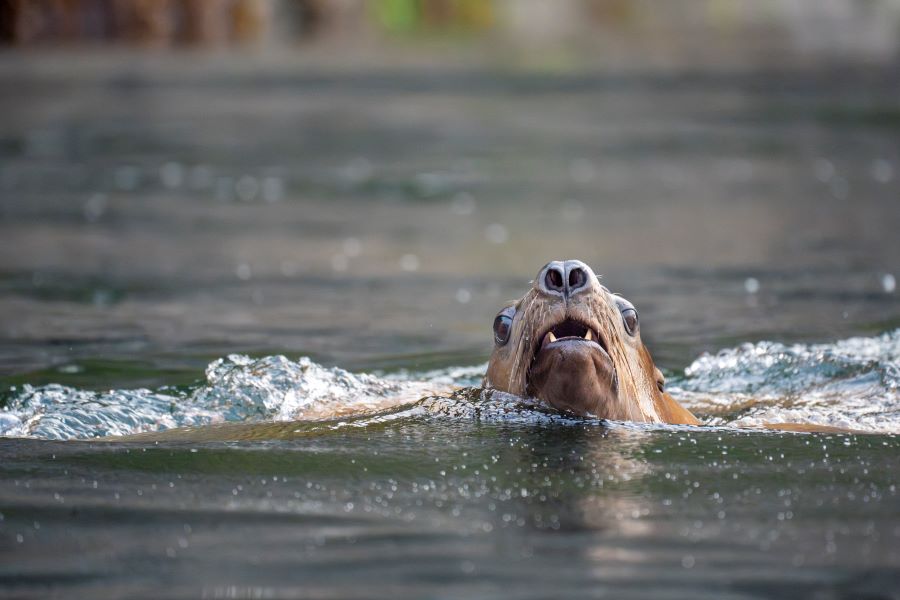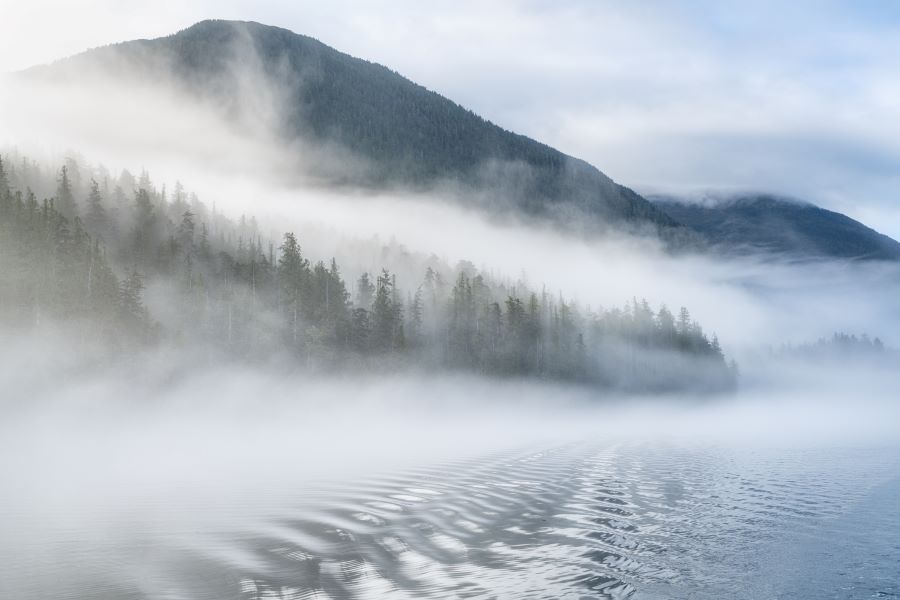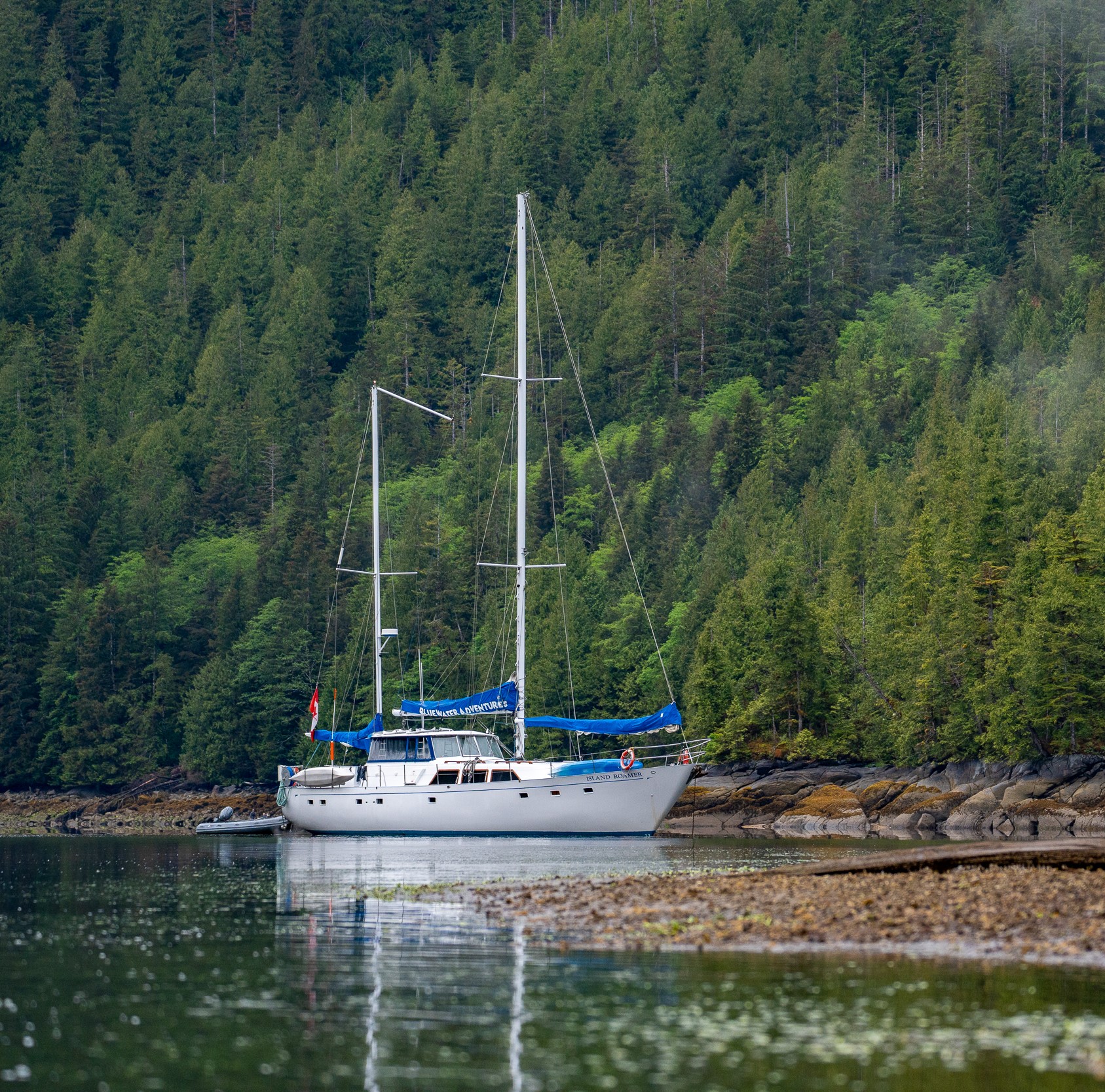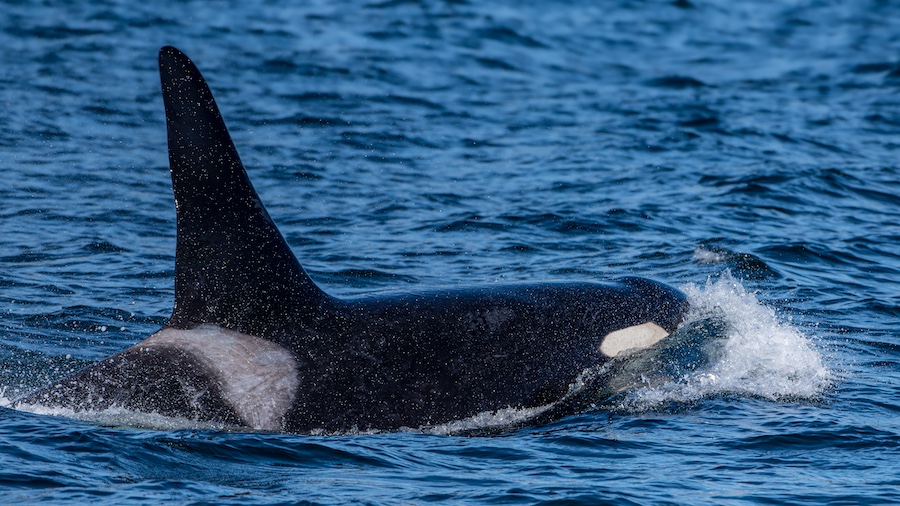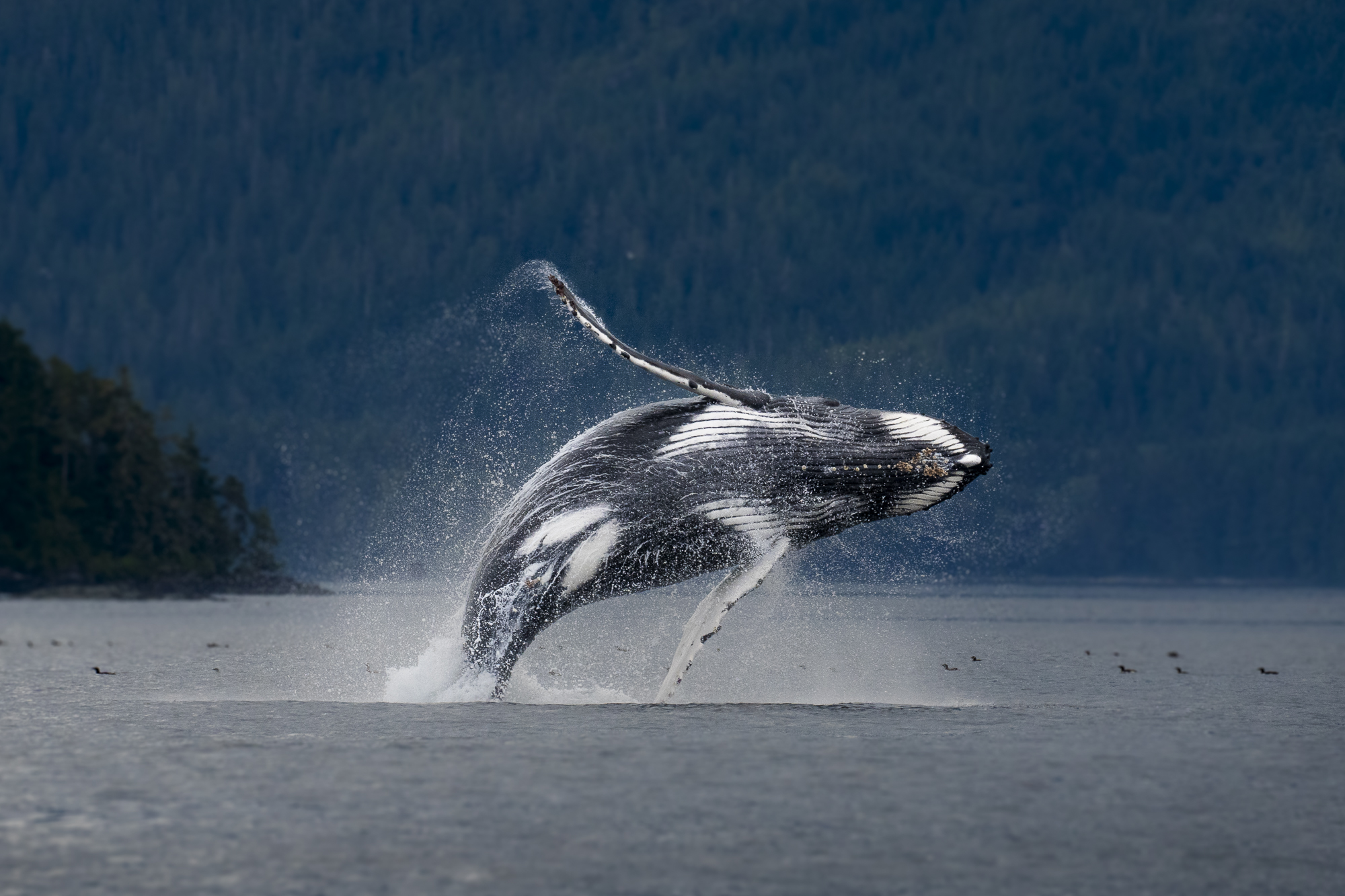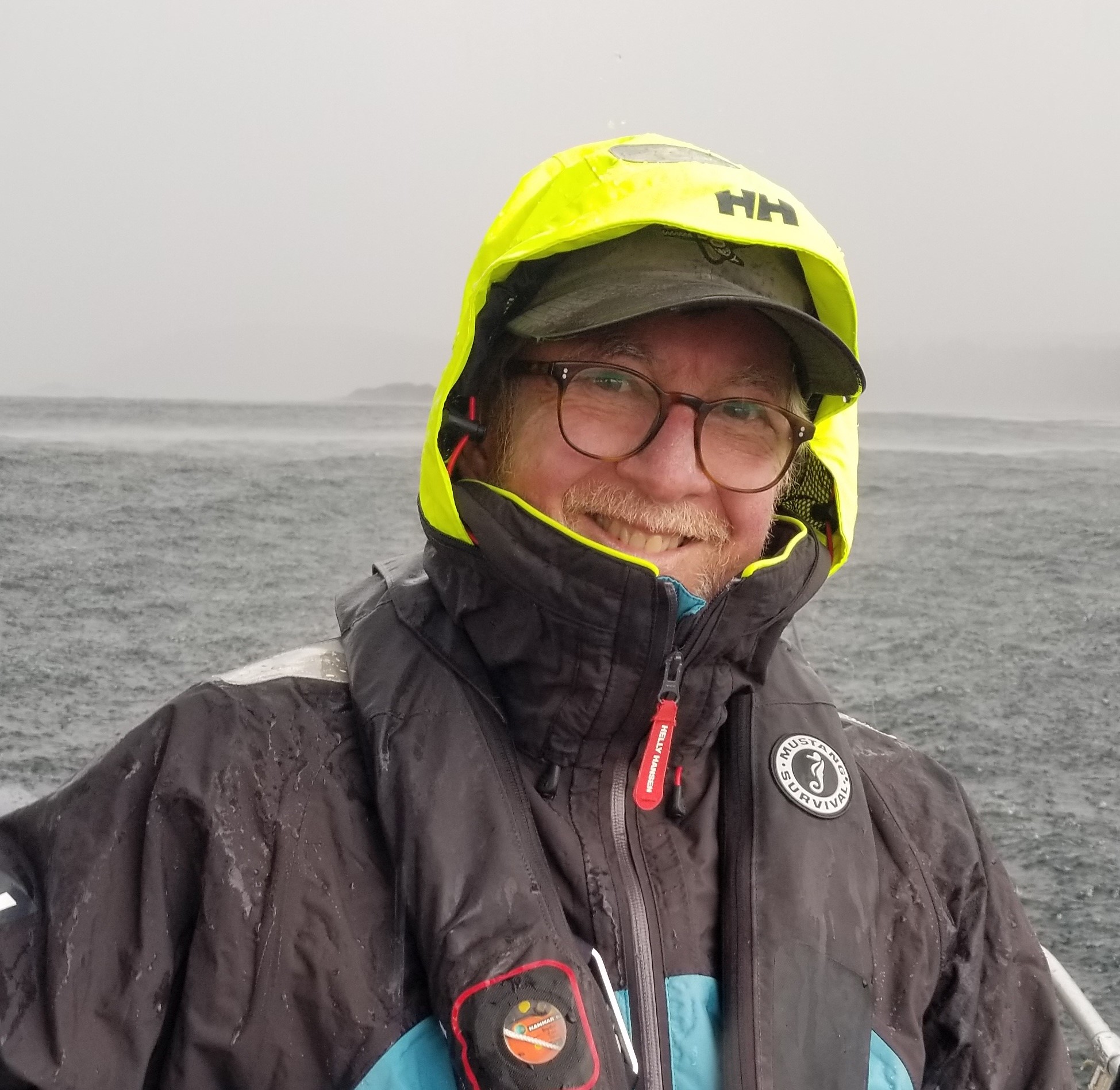
Explore the Northern Great Bear Sea
Learn from the Best
Join marine mammal expert, Dr. John Ford, on an epic adventure taking a deeper dive on whales of the BC coast. Dr. Ford shares his knowledge from decades of research that has focused on the life history, ecology, behaviour, and acoustic communication of cetaceans. This is a rare opportunity for our guests and crew!
Route and Notable Stops
We keep our itineraries purposefully flexible allowing our captains to cater to the needs and interests of their group as well as take into account weather, wildlife sightings, and more. Below is a sample of the route you may take on this custom Great Bear Sea expedition.
Board in Prince Rupert
Meet the Bluewater Adventures crew at the top of the dock at the Cow Bay Marina in the late morning. Upon boarding the vessel, cabins will be assigned and following introductions and safety orientation we will depart Prince Rupert.
Sailing, and the Pursuit of Whales
We return to the outer islands and lower topography of Chatham Sound; Porcher, Stephens and Dundas Islands are the largest in the area with remote beaches for us to explore. As the waters surrounding these outer islands are more exposed, we also hope for a good wind to allow for the opportunity to set the sails and enjoy the silence and serenity of nature.
Humpback whales congregate along the mainland coast and we expect to find them feeding here. We also keep watch for other marine mammals like orca, porpoise, and Steller sea lions – an inquisitive species that are expert, deep-water predators.
Heading out from Chatham Sound, weather and tides dictate our course as we chart the course in search of cetaceans.
Inside Passage with Whales, Whales, Whales
Heading south from Chatham Sound we will enter Grenville Channel, part of the famous “Inside Passage” route to Alaska towards southern Douglas Channel. Exploring these waters – and at various other places along our journey – we expect to see humpback whales. We keep an eye out for large spouts and hope to witness very interesting behaviours like breaches, pectoral slaps, spy-hopping and possibly bubble-net feeding.
Fin whales have also been spotted in Caamano Sound and we hope to have luck spotting these massive and speedy cetaceans. If time permits, we will make a stop to visit local whale researchers to learn about their fascinating work.
As we travel along Princess Royal Island, we keep our eyes on the shoreline just in case of a chance sighting of the creamy-coated Spirit Bear.
Weather-Permitting Day
If weather permits, we will follow the Chinook salmon to the outside of Aristazabal Island in search of Resident (fish-eating) orca.
Alternately we will remain in more protected waters keeping our eyes at the water’s edge for bears feeding on protein-rich sedge grasses in intertidal areas.
Trip Finish – Bella Bella, BC
As we approach the waters of Milbanke Sound keep watch for sea otters. You might spot them in the kelp beds wrapped in the leaves of kelp to anchor themselves against the currents. Although sightings of these growing colonies have become more frequent, their population here is still considered vulnerable and of special concern.
Our tour finishes in the small indigenous community of Bella Bella. Located on remote Campbell Island, Bella Bella – also known as Waglisla – is a town of about 1450 residents and is the home of the Heiltsuk First Nation. It is accessible only by plane or ferry/boat.
To request a full Great Bear Sea itinerary, contact us
Whales & Sails
Navigate prime foraging areas for whales and other marine mammals. We will raise the sails with a good breeze and silently glide to our next adventure.
Bears Foraging Along the Shoreline
Keep your binoculars handy as we travel along well-known bear foraging areas.
Travel with Esteemed Marine Mammal Scientist
Join us on this rare opportunity to travel with Dr John Ford. We take a deeper dive on the life history, ecology, behaviour and communication of these formidable creatures.
One Off Itinerary
This itinerary has a keen focus on the marine mammals of the British Columbia coast. We anticipate incredible viewing opportunities from our small ship.
Limited Availability
New itinerary this year! Contact us today to secure your spot on this rare travel experience. All prices are listed in CAD and are subject to a $200 sustainability fee and 5% GST tax.
Book Now| Date | Start / Finish Location | Days | Vessel | Price | Trip Status |
|---|---|---|---|---|---|
| Aug 18 – 26, 2026 | Prince Rupert – Bella Bella | 9 | Island Roamer | $8,625 CAD | Open |
Prepare for Your Adventure
Feel prepared and equipped for traveling to and living aboard our vessels. Learn more about guest expectations, amenities onboard, and what to bring along to make the most out of your once in a lifetime eco-tour.
Learn MoreYour Nautical Accommodation
An aquatic home away from home
Island Roamer is a 68-foot ketch motor-sailer. There are 6 double occupancy guest cabins and 3 shared bathrooms with hot showers. In addition to a comfortable salon with an excellent natural history library, the large wheelhouse above deck provides comfortable seating in all types of weather.
Island RoamerFrequently Asked Questions
Being a new itinerary, guests have questions about why the Great Bear Sea is so great!
Explore ALL FAQsDr. John Ford has been involved in field studies of whales and other marine mammals since the mid 1970s. He received a PhD in Zoology at the University of British Columbia in 1985, for his discovery and documentation of acoustic dialects in killer whales off Canada’s west coast.
He is a research scientist (emeritus) at the Pacific Biological Station, Fisheries and Oceans Canada, Nanaimo, BC, where he headed up the Cetacean Research Program for 16 years. Prior to his move to the Pacific Biological Station in 2001, John was senior marine mammal scientist and Director of Research and Conservation at the Vancouver Aquarium. His main areas of research include the life history, ecology, behaviour and acoustic communication of cetaceans, especially killer whales.
He has studied orcas both in BC and other global regions, including Patagonia, Antarctica, Alaska and Norway. He has also done field research with humpback whales, gray whales, North Pacific right whales, bowheads, narwhals, and belugas.
In recent years, his research has focused on the conservation status of cetaceans listed under Canada’s Species-at-Risk Act and involves assessments of population abundance and distribution, critical habitats, and foraging ecology of whales in the Canada Pacific. He recently served as Co-Chair of the Marine Mammal Subcommittee of the Committee on the Status of Endangered Wildlife in Canada (COSEWIC) and is a member of the IUCN’s Cetacean Specialist Group.
This itinerary is specifically focused on the marine environment and wildlife of the Great Bear Sea. We are prioritizing finding and observing whales and other sea life in their natural habitats.
With Dr Ford aboard to explain how whales communicate, we expect to see some interesting species-specific whale behavior like; spy-hopping, fin slapping, tail lobbing, bubble-net feeding, and breaching.
We will be navigating to various feeding grounds with the goal of encountering:
- Humpback Whales: These whales are being seen in greater numbers in this area each year.
- Fin Whales: We will visit a new marine protected area beyond Caamano Sound specifically hoping to encounter these mighty whales.
- Northern Resident Orcas (fish-eating): If weather conditions allow, we plan to visit one of their favorite summer feeding areas.
We expect to see humpback whales, and while navigating prime foraging areas, we keep an eye out for Dall’s porpoise, harbour porpoise, Steller sea lions, fin whales, orca, and even sea otters , congregating in larger numbers in the Southern reaches of the Great bear Sea.
We will definitely see bald eagles, and countless other sea birds on our journey following whales, and hope to have the privilege of spotting forgaing bears along the shoreline.
You can expect to see just about everything at this time of year. It is drier than the fall months, but you should always prepare for rain on the BC coast. Temperatures will be mild, from 10 – 17 degrees C / 50 – 65 degrees F, and days are longer too.
This itinerary offers a lot of opportunities for shore excursions, whether it be to a bear viewing area, a rainforest walk, or even some paddling the shoreline. For any shore excursion we take, guests will need to be able to get in and out of the zodiac – both into/out of the zodiac from the boat as well as in/out of the zodiac onshore, which is usually from a pebbly or rocky shoreline. The walks we take onshore will vary both in length and terrain, though will usually be minimal in elevation gain or loss.
Continue Your Coastal Education
Browse through our collection of stories reflecting information, thoughts on, and experiences relating to the Great Bear Sea adventure – written by our seaworthy and knowledgeable staff & crew.
